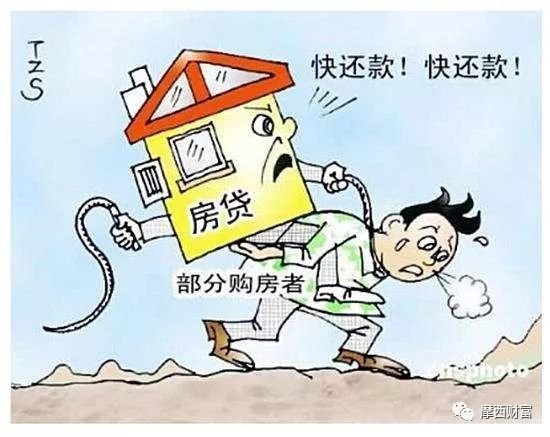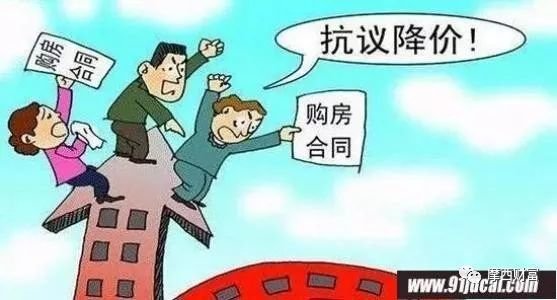Under the background of the great change of population factor, under the great turning point of the decline of the number of producers, under the continuous recession of the real economy and the increasing emigration population, the housing price of China has been accumulating a new bubble at a high speed.
Under the background of the great change of population factor, under the great turning point of the decline of the number of producers, under the continuous recession of the real economy and the increasing emigration population, the housing price of China has been accumulating a new bubble at a high speed.In 2013, real estate prices in 70 large and medium-sized cities across the country hit a record high year on year, with only one city, wenzhou, seeing a drop.The biggest increase was still in first-tier cities.Prices accelerated in first-tier cities such as Beijing, Shanghai, shenzhen and guangzhou, all rising more than 20 per cent year-on-year.Housing prices in 31 second-tier cities, including tianjin, rose 8 to 15 percent year-on-year.Tangshan and other 35 third-tier cities rose about 6 percent year-on-year.This law of rising prices, the author has repeatedly stressed the characteristics of China's house price ladder.

Why are house prices rising as the real economy slumps?Professor lang has explained this phenomenon.He thinks that the rapid rise in housing prices in recent years is mainly due to the difficulty of manufacturing industry. Many entrepreneurs put money that should be invested in manufacturing into their houses, which in turn led to a large amount of real economy capital and avoided the capital flowing into the real estate industry.
Too much of sorrow.What a danger it is when the money that goes into manufacturing after it closes becomes a powerful driver of the housing market's rise.Because, this means that the number of people who do business steadily is decreasing, the number of people who speculate is increasing, and the wealth creation of any society cannot leave the industry, finally must be based on the industry.
High housing prices have become the dominant force destroying the real economy.Lu zheng, a member of the academic department of the Chinese academy of social sciences, pointed out the following points: high housing prices drive up industrial and commercial costs and weaken the competitiveness of China's economy.The first is higher Labour costs.With housing prices and rents rising sharply, companies have had to raise wages.Secondly, the excessively high housing price increases the business cost. On the one hand, the rent expense of the retail business increases; on the other hand, due to the insufficient effective demand of consumption, business is light, which makes the business of commercial retail and service industry get into trouble.
From the perspective of demand, high housing price aggravates the economic pressure of housing buyers, ensnares the consumption capacity of two generations, weakens the purchasing power of other consumer goods, compresses the market space of other industries, and hinders the coordinated development of national economic industrial system.
As the real economy gradually declines, housing prices become a source of water.A qualitative change in the force that drives house prices up will turn into a force that pushes them down, with devastating consequences.Paradoxically, the more depressed the real economy, the more real estate needs to pull.This is one of the reasons why the government's talk of real estate regulation has become weaker and weaker since 2012.In China's economic data clearly shows that: in the third quarter of 2013 years ago, the whole society fixed asset investment growth of 20.2%, with manufacturing investment growth than the same period in 2012 fell 4.98%, while real estate development investment growth than the same period in 2012 increased by 4.3%, especially residential development investment increased by 9%.When the total retail sales growth of social consumer goods is lower than that of 2012, and the contribution to economic growth declines significantly, "the role of real estate development investment in stabilizing the fixed asset investment of the whole society has significantly increased".
In the case of the real economy recession, the real estate industry belonging to the virtual economy is more important to government revenue.The government has profited handsomely from property development.This means that maintaining the status quo for as long as possible is a goal the government is keen to pursue in order to avoid the huge impact of the sudden bursting of the housing bubble.This is exactly why China has become increasingly cautious about real estate regulation since 2013.
The fragility and danger of China's real estate is that as long as expectations of continued price rises falter, the crisis will be immediately exposed.
In China, developers are very dependent on bank loans.This makes Chinese real estate have a very special point: developers do not have enough capital to complete the real estate development smoothly, must use the pre-sale method to achieve financing.As the financing mechanism of real estate development needs to be coordinated with the rising housing price, that is to say, the financing mechanism is the main reason for the rise in housing price.That's because if prices don't go up, which owner would be willing to pre-buy a home that hasn't been seen?Imagine that if the housing price remains unchanged during the development and construction process, the vast majority of owners will hold money and wait until the house is built before deciding to buy it.In this way, the vast majority of Chinese developers will face liquidity problems, and many will even face the risk of bankruptcy.
As previously analyzed in WeChat public account, the trend of housing price is closely related to the flow of population and wealth, which directly leads to the stepwise distribution of Chinese housing price.However, when the housing price rises to a level very close to that of developed countries, the flow of resources to third - and fourth-tier cities will turn into the flow overseas under the external influences such as the rising cost of living, declining quality of life and haze.For this means not only a change in the will and route of the original flow of resources, but also a change in expectations.A 2010 study by the Chinese academy of social sciences found that China is the world's largest exporter of migrants, with about 45 million Chinese scattered around the world.The development of overseas investment migration leads to the double loss of assets and human rights in China, which is not conducive to the supervision of non-performing assets and affects the development of China's real economy.
The immigrant population is dominated by middle and high earners, especially high earners, who are the mainstream consumers of Chinese real estate.The surge in the number of immigrants from middle and high income groups will first reduce the demand for medium and high-end real estate in China, thus accelerating the situation of oversupply of real estate in China and pushing down the housing price.
One fundamental factor that affects house prices is expectations: if they are expected to rise, someone will take over even higher prices;If house prices are expected to fall, people will choose to wait for even lower prices.So this phase, which began in 2016, will be a time of collective shift in direction.The house price adjustment triggered by this time is not just adjustment, its burst of destruction can easily trigger the collapse of the currency devaluation.This is something we need to be especially vigilant about.
Authors get paid when people like you upvote their post.
If you enjoyed what you read here, create your account today and start earning FREE STEEM!
If you enjoyed what you read here, create your account today and start earning FREE STEEM!